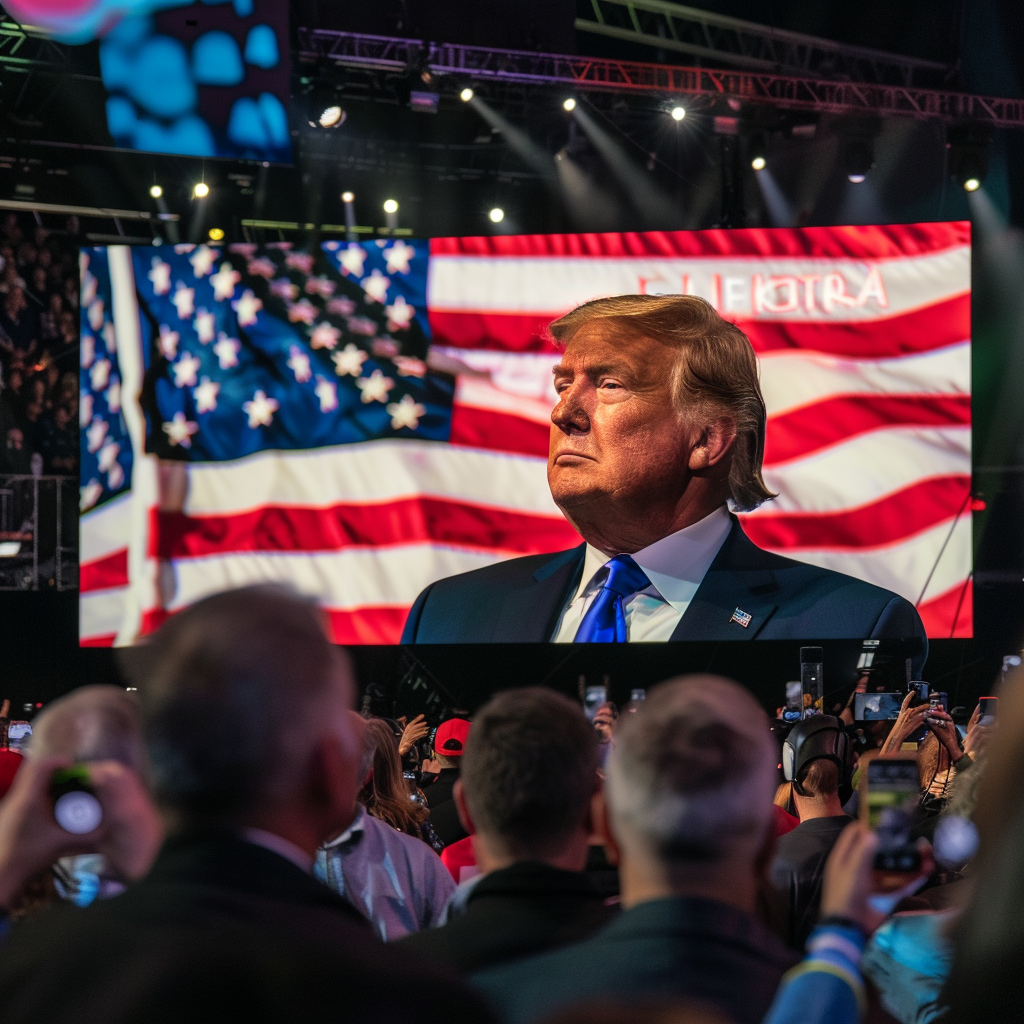Yesterday’s U.S. election produced historic and controversial results, as former President Donald Trump achieved a political comeback and reclaimed the presidency. Here’s a breakdown of what happened, how key issues influenced the vote, and what this means for domestic and international relations.
Trump’s Historic Win and the Electoral Map
Trump’s projected victory marks his return to the White House after his defeat in 2020. Trump won the critical battleground of Wisconsin, giving him over the 270 electoral votes needed to secure the presidency. The final tally saw Trump winning 276 electoral votes to Vice President Kamala Harris’s 223. Alongside his presidential victory, Republicans also gained control of the Senate, further solidifying the GOP’s influence.
Trump’s Victory Speech and Campaign Focus
In an early-morning victory speech at the Palm Beach Convention Center, Trump intended to create a “golden age of America.” His speech emphasized themes from his campaign, including strengthening the economy, tightening immigration controls, and boosting national security. Trump also addressed his promise to make America a “crypto capital,” highlighting his pivot to a pro-cryptocurrency stance, a surprising shift from his previous skepticism.
Global Reactions to Trump’s Win
Leaders worldwide reacted swiftly to Trump’s win, reflecting a range of expectations for U.S. international policy under his second term:
- Japan: Prime Minister Shigeru Ishiba expressed eagerness to reinforce U.S.-Japan ties, focusing on security issues.
- South Korea: President Yoon Suk Yeol welcomed working closely with Trump to counter North Korean threats.
- Middle Eastern and African Leaders: Figures like Jordan’s King Abdullah II and Zimbabwe’s President Emmerson Mnangagwa extended congratulations, hoping for enhanced cooperation.
Conversely, Russia’s reaction was more reserved, with the Kremlin signaling cautious optimism about a new era in U.S.-Russia relations. While largely quiet, European allies monitor Trump’s trade policies, which are expected to impact European markets.
Economic Ripples and Cryptocurrency Surge
The markets responded strongly to Trump’s win, with European markets rallying and Bitcoin hitting a record high of $75,345 before stabilizing. Trump’s newfound embrace of cryptocurrency and his promise to turn the U.S. into a “crypto capital” spurred the spike, and he even accepted campaign donations in Bitcoin. This has been a significant shift in Trump’s policy platform and has energized crypto markets globally.
Domestic Policy Shifts: What to Expect
Trump’s second term is expected to differ markedly from his first. He will likely find smoother legislative paths to enact his agenda with a GOP-controlled Senate. Several key areas to watch include:
- Economic Policy: Trump has promised to lower taxes and continue deregulation, emphasizing energy independence and reducing inflation.
- Immigration: Stricter immigration controls and increased security at the U.S.-Mexico border are high on Trump’s list. These policies resonate with his base, which seeks tighter control over immigration.
- Healthcare and Education: Trump is expected to push for conservative healthcare reforms and oppose progressive education policies, aiming to establish a more traditional approach in both sectors.
Foreign Policy: Shifts in Ukraine and NATO
Trump’s administration may mark a new chapter in U.S.-Ukraine relations. Trump has signaled a potential reduction in U.S. support for Ukraine amid its conflict with Russia, suggesting that Ukraine may need to negotiate with Russia. This shift has created significant concern in Kyiv and among European U.S. allies, who fear reduced American support might destabilize NATO’s unified stance.
Trump’s second term could also reevaluate America’s commitments to NATO, possibly reducing the country’s involvement in global conflicts. His stance reflects a shift from previous administrations’ foreign policy approach, favoring isolationist policies prioritizing “America First.”
The Road Ahead: Trump’s Legal Challenges and Public Support
Trump’s return to the presidency presents unprecedented legal and constitutional questions. He is the first president to enter office with ongoing criminal cases, including a recent conviction in New York. These cases have not diminished his base’s support; on the contrary, Trump’s campaign successfully used his legal troubles to energize supporters who view him as a victim of “politically motivated” prosecution.
Harris and the Democratic Party’s Path Forward
For the Democrats, this loss represents a critical moment of reflection. Vice President Kamala Harris’s campaign strategy highlighted issues like abortion rights, healthcare, and social equality. However, the election results indicate that these messages did not resonate strongly enough with critical voter demographics, particularly among Latino men and white, college-educated women, who swung toward Trump.
The Democratic Party will likely need to reassess its platform to regain momentum in future elections. It should balance progressive policies with broad-based economic and social strategies that can appeal to a more diverse voter base.
Key Takeaways and Next Steps
Trump’s election is a defining moment in U.S. politics, signaling shifts in domestic and international arenas. His return to the Oval Office will likely bring significant policy changes in the U.S. and its relations with the world. As domestic and global stakeholders prepare for the years ahead, the United States may see a transformation in its identity on the world stage, with Trump again at the helm.



No comment